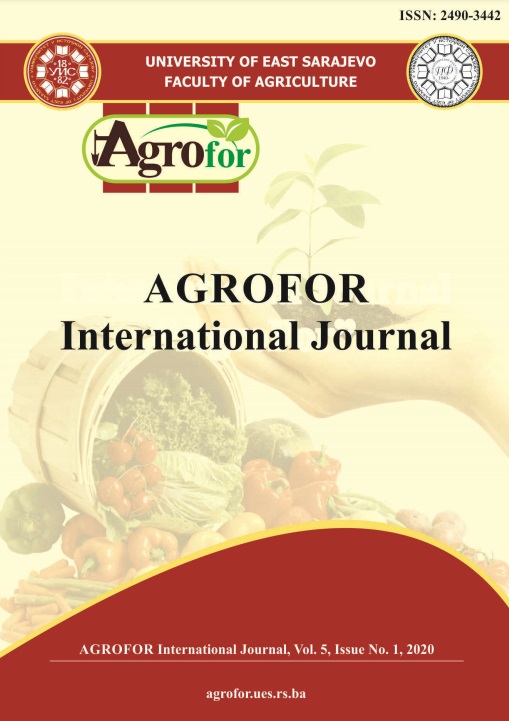ASSESSMENT ON PERFORMANCE OF PARTNERSHIP EXTENSION MODELS IMPLEMENTED IN TEA SMALLHOLDING SECTOR IN SRI LANKA
DOI:
https://doi.org/10.7251/AGRENG2001112JAbstract
Tea smallholding sector provides the highest contribution to Sri Lankan tea industry. In recent years the productivity of tea smallholdings has shown a declining trend. This could mainly be attributed to limitations of providing an optimum extension service. The Public-Private Partnership (PPP) extension models have been introduced during the last decade as an alternative to a part of the tea smallholdings sector. This study was carried out to assess the performance of three such well-established partnership extension models and to identify the factors affecting their success. Three partnership extension models representing a factorybased model (FBM), an input supplier-based model (ISBM) and, a development agency-based model (DABM) were selected for the study. Six key components of a successful partnership i.e. trust and cohesiveness, motivation to participate, resource sharing, support to achieve long-term expectations, sharing technical information and, satisfaction about the model were used to assess the success of PPP. The primary data was collected using pretested questionnaire schedule
followed by key informant interviews with randomly selected 90 smallholders (30 from each model) and with extension partners from each model. The findings revealed that productivity of tea smallholder lands in FBM is the highest when compared to that of other two models. This could be attributed to the more frequent contacts with smallholders and better provision of other services. Some success factors of the models viz. trust and cohesiveness, resource sharing, technical information sharing and motivation to work showed a significant relationship with age, experience, tea land extent and productivity (p<0.05). Development agency model was highly rated by poorer tea smallholders, while those having higher land extent highly rated the other PPP models. Partnership models should serve equally to all tea smallholders and therefore, it could be recommended that partners of PPP AGROFOR International Journal, Vol. 5, Issue No. 1, 2020 113 extension model should further promote trust and cohesiveness, sharing of technical information and resources to establish successful partnerships.

